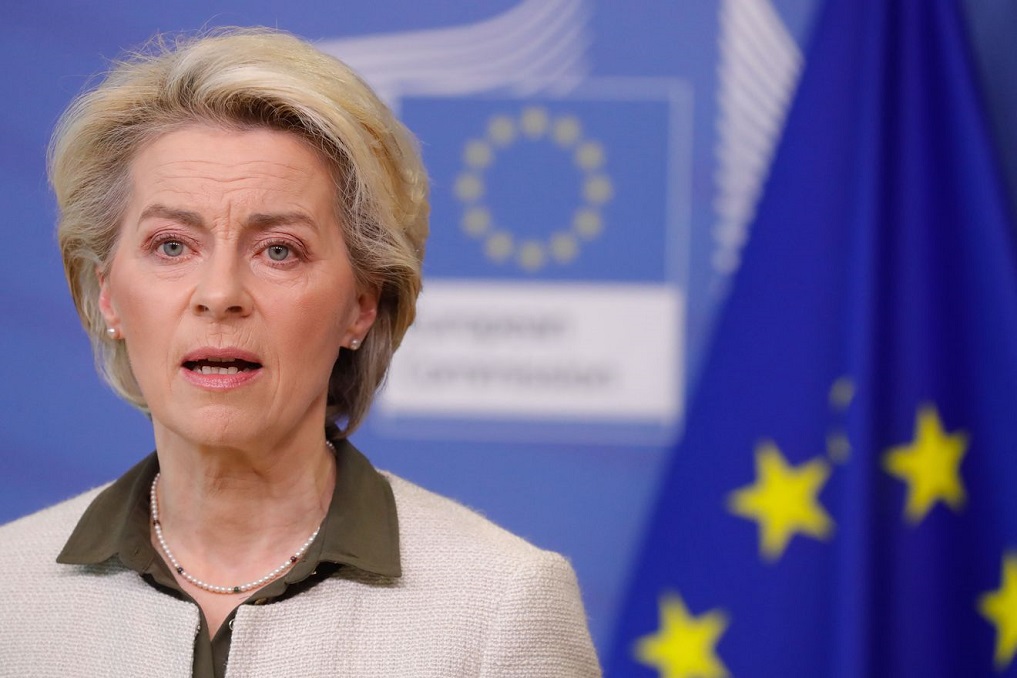European Commission President Ursula Von Der Leyen welcomed on Sunday Ukraine's membership application to join the EU, but warned there is no getting around the "clear path" set out in the EU's treaties.
"There are no doubts that the brave Ukrainian people and the outstanding leadership of President Volodymyr Zelensky belong to our European family," the EU executive head told CNN from Berlin where she was meeting German Chancellor Olaf Scholz.
Zelensky's application "set the process in motion," Von der Leyen said, but this "will take time," she underlined.
Asked by her American interviewer when at the earliest that process could bear fruit, she replied: "It's hard to say."
"There is a clear path described in our processes," she admitted, referring to the Copenhagen criteria concerning "stability of institutions" and Lisbon Treaty accession rules even before entering multi-year negotiations over economic, security and legislative convergence across 35 distinct chapters of bloc 'acquis'.
'Existential fight'
"At the moment, the most important thing is to support Ukraine as much as possible in this existential fight," she said, also describing the war with Russia on the ground in Ukraine as "democracies fighting autocracies".
While Von Der Leyen played it coy for her US audience, top Brussels policy analysts had already told The Brussels Times to treat the notion that Ukraine could somehow be granted early EU membership with a pinch of salt.
"I don't think much more can be done than giving a signal of intent, but there also needs to be management of expectations," said Fabian Zuleeg, chief executive of the blue-chip European Policy Centre.
Related News
- Israel mediates between Ukraine and Russia in attempt to stop the war
- EU threatens Russia with more sanctions to make it stop the war
- NATO takes 'painful' decision to stay out of Ukraine
"Accession is also about readiness of the candidate, I think it would be very hard for the Ukrainian economy to be exposed to the full force of the Single Market," he added, pointing to procurement laws, for instance.
The key for the EU lies in "extensive aid" to help Ukraine "get ready and do it gradually, but all that is difficult in a war in any case."
'Candidate status'
For Eric Maurice, director of Brussels-based, French-funded policy analysts The Robert Schuman Foundation, "candidate status is what can be given now."
He said a political choice to "fast track recognition of candidate status" may be on the cards, but "I don’t think a country at war or after a war can respect all the legal and practical requirements."
The symbolism in terms of Von der Leyen's stated ideological struggle also runs firmly into longstanding talks with Balkan neighbours previously granted candidate status but without any breakthrough in concrete entry negotiations.
"Candidate status is nice," said one veteran national diplomatic leader, who preferred not to be identified further. "But it means nothing, absolutely nothing. Just see what they are doing to Albania and North Macedonia."
These countries were first identified as EU enlargement hopefuls in 2003, and acquired formal candidate status between 2005 and 2009.

